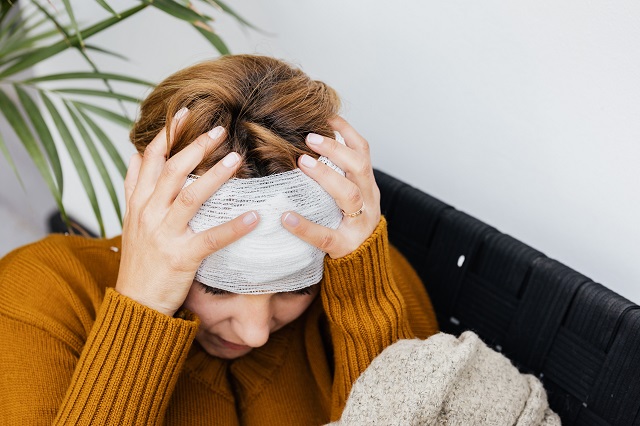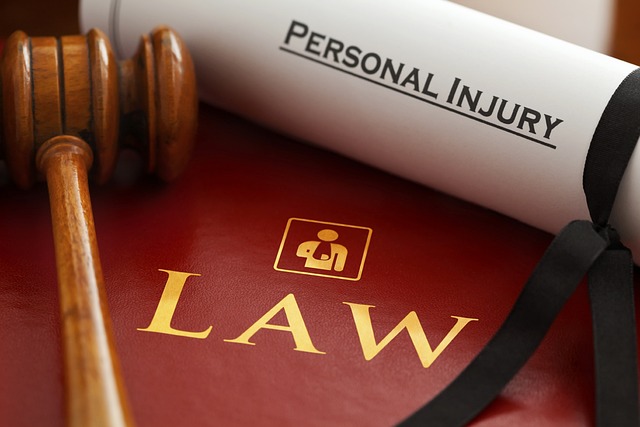8 Great Tips on How to Recover from a Personal Injury
8 Great Tips on How to Recover from a Personal Injury
8 Great Tips on How to Recover from a Personal Injury
Life is unpredictable and unfortunately, accidents do happen. Whether it’s a slip and fall, a car crash, or any other accident, a personal injury can leave us feeling vulnerable and in need of healing. But fear not, for there is hope and a way forward.
In this blog post, we’ll share with you eight top tips on how to recover from a personal injury and take back control of your health.

Photo by Karolina Grabowska on Pexels
From physical recovery to emotional support, we’ll explore practical strategies and empowering insights to guide you on your recovery journey. Each technique is carefully planned to address every aspect of treatment to help you recover stronger and return to life. So, let’s take a deeper look.
1. Seek immediate medical attention
One of the most important steps after suffering a personal injury is to seek immediate medical attention. Whether the injury is minor or severe, access to prompt medical care is critical for a number of reasons.
First, it ensures that your injury is properly diagnosed and treated, preventing any potential complications or long-term consequences. Second, seeking medical care establishes a written record of your injury, which is critical for insurance claims or legal proceedings.
Finally, a medical professional can provide you with guidance on how to manage your injury, relieve pain, and offer suggestions for further treatment or rehabilitation.
Remember that even seemingly minor injuries should not be ignored as they can develop into more serious problems if left untreated. Prioritizing your health by seeking immediate medical attention is the first step to a successful recovery.
2. Gather enough evidence for your case
When dealing with personal injury, it is crucial to gather enough evidence to support your case. This evidence will play a vital role in determining liability and seeking compensation for injuries.
Start by gathering all relevant documents, such as medical records, photos of the accident scene, and any correspondence with insurance companies or other interested parties. Witness testimony and video footage (if available) can also strengthen your evidence.
Also, keep detailed records of your injury, the cost of treatment, and any impact on your daily life. Not only does this evidence aid in negotiations with insurance companies, but it can also provide a solid basis when legal action is required.
3. Consult a personal injury attorney
After suffering a personal injury, it is highly recommended to consult a personal injury attorney. These legal professionals specialize in cases related to personal injury and can provide invaluable guidance throughout the process.
An experienced personal injury attorney can evaluate the merits of your case, advise you on your rights, and help you navigate the complex legal process involved. They can also communicate and negotiate with insurance companies to ensure your best interests are represented.
Additionally, an attorney can prepare and present your case in court if a fair resolution cannot be reached. Their expertise and experience will greatly improve your chances of getting the compensation you deserve.
4. Follow your doctor’s instructions
One of the most important tips for recovering from a personal injury is to strictly follow your doctor’s instructions. After treatment, your healthcare provider will provide specific instructions and a treatment plan for your injury.
Following these recommendations is critical to ensuring proper healing and recovery. This may include taking prescribed medications, attending physical therapy classes, using assistive devices, or following a specific exercise or rehabilitation program.
By following your doctor’s directions, you can give your body the best chance to heal, regain strength, and prevent further complications. Any concerns or difficulties you experience during recovery must be communicated to your healthcare provider to ensure appropriate adjustments are made to your treatment plan.
5. Rest and allow yourself to heal
Resting and allowing yourself to heal is an important aspect of recovering from a personal injury. Your body needs time and adequate rest to repair damaged tissue and regain strength.
It’s important to listen to your body’s signals and avoid putting too much pressure on yourself, as this can delay the healing process and even lead to further damage. Follow the limits or restrictions recommended by your healthcare provider and avoid activities that may make your condition worse.
Prioritize sleep, maintain a balanced schedule, and allow yourself to take breaks when you need them. By allowing yourself to rest and recover, you give your body the time and energy it needs to recover effectively.
6. Seek out emotional support
Recovering from a personal injury can be emotionally challenging, and seeking emotional support is critical to overall well-being. Seek out those who can provide you with understanding, such as friends, family or support groups. Sharing your feelings, fears and frustrations can help relieve emotional stress.
Consider seeking professional help, such as therapy or counseling, to deal with any trauma or emotional distress related to your injury. Participate in fun and relaxing activities, such as hobbies or mindfulness exercises.
Prioritize self-care and practice self-compassion. Remember that seeking emotional support is not a sign of weakness, but a necessary step toward healing and resilience.
7. Documentation of medical bills and treatments
Documenting your medical bills and treatments is critical to managing your personal injury case. Keep detailed records of all medical bills, receipts and invoices related to your injury. This document is important for insurance claims, reimbursements, or potential legal action.
Make sure to include expenses such as hospital visits, surgeries, medications, rehab classes, and any other related medical services.
In addition, records are kept of the dates, descriptions and results of treatments. This document will help determine the extent of your injury, the medically necessary care you received, and the financial impact of your injury.
By keeping accurate records, you can ensure that you have the evidence necessary to support your case and seek appropriate compensation.
8. File claims on time
Timing is of the essence when filing a personal injury claim. Each jurisdiction has specific statutes of limitations that determine the time frame within which you can file a claim. Failure to meet these deadlines may result in your claim being dismissed regardless of whether your case is valid or not. Therefore, it is important to know and abide by the applicable deadlines.
Contact a personal injury attorney immediately after your injury to ensure you have enough time to gather evidence, assess damages, and initiate the claims process. Prompt filing of claims is critical to protecting your rights and seeking the compensation you deserve.

Image by Claims Accident Services from Pixabay
Recovering from a personal injury requires a proactive approach and following basic tips. By implementing the tips above, you can maximize your chances of a successful recovery and ensure you receive the support and compensation you deserve.
Stay stylish all day long!
Find more articles in our categories DIY Home & DIY Projects et encore Tips & Crafts .
Thanks for visiting we hope our article 8 Great Tips on How to Recover from a Personal Injury
, we invite you to share the article on Facebook, twitter and whatsapp with the hashtag ☑️ #Great #Tips #Recover #Personal #Injury ☑️!


Comments are closed, but trackbacks and pingbacks are open.